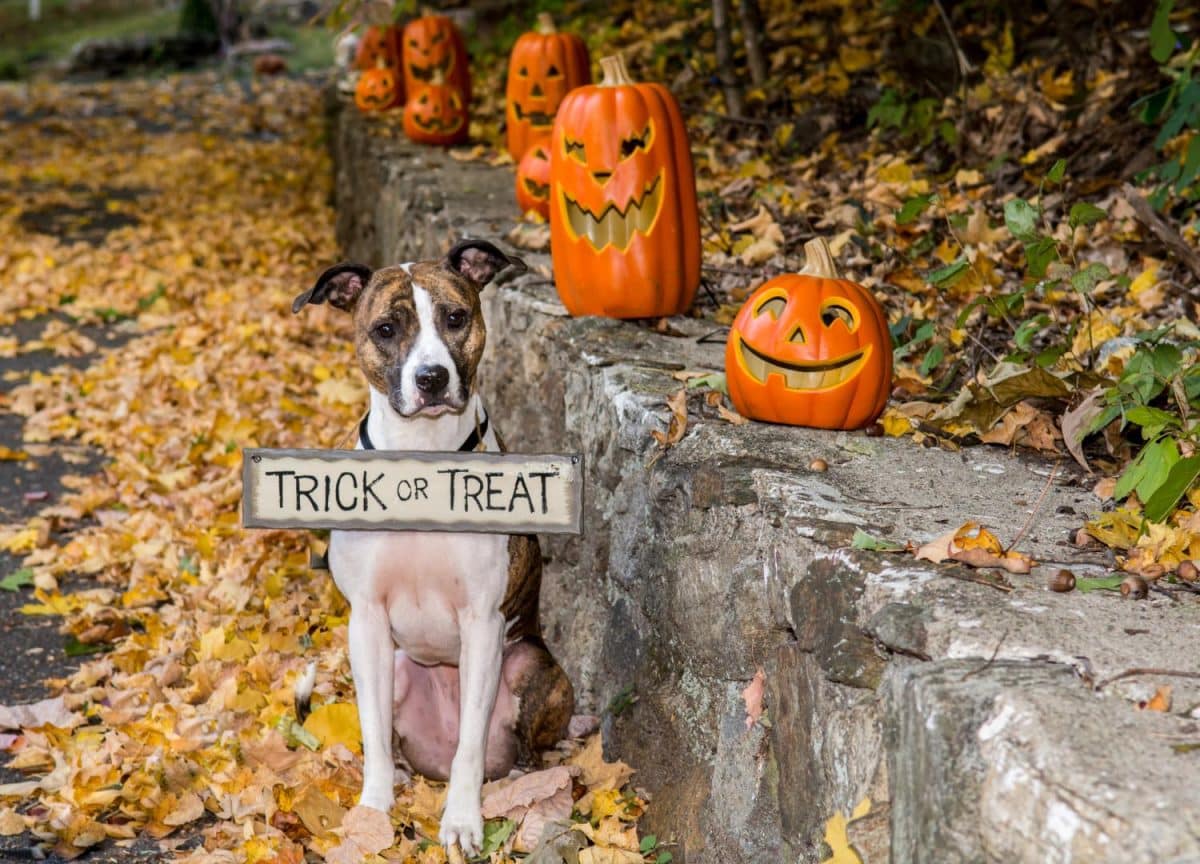The sweet Treats are undoubtedly one of the best parts of Halloween, but make sure that your dog or pet doesn’t get tricked into eating something from your stash that could make them sick.
It’s no secret that chocolate isn’t healthy for pups to consume, and with it being one of the most popular and common types of candy it is important to keep it out of their reach. There are a few active chemicals in chocolate that a dog’s metabolism isn’t suited for, such as theobromine and caffeine. Unfortunately, it likely smells as appetizing to them as it does to us.
There are a couple things to remember about chocolate type and amounts when compared to your dog. If your furry friend does consume some chocolate on accident, consider how much they had vs. their overall size. The smaller the dog the less chocolate that is needed to make them ill, so your large Great Dane will likely not notice one fun size piece. Additionally, the darker the chocolate the purer it is and is more likely to harm your dog, whereas milk chocolate contains much less actual chocolate. Chocolate covered raisins are a double-threat, since grapes, fresh or dried, are also harmful to dogs.
Regardless of these details, if your dog has eaten chocolate we suggest that you contact us immediately at (762) 221-2202.
Another Halloween candy culprit are hard candies and gummies, which often include the sugar substitute Xylitol, especially if they claim to be sugar-free. This additive is very toxic to dogs, even in the smallest doses, because it can cause a large quick drop in blood sugar called Hypoglycemia. Xylitol can also cause liver damage and failure in canines, depending on how much is consumed and if it goes untreated.
Apart from candy specifically, many other sugar-free foods that you may encounter around Halloween also utilize this same sugar alcohol, such as baked goods and desserts, ice cream, chewing gum, pudding, and more.
Our goal at Campbell Veterinary Hospital is to catch illness before it causes irreversible damage, so if you believe your pet has consumed something that may contain Xylitol, please contact us for state-of-the-art, preventative care.
Furthermore, if your dog comes along to knock on neighbors doors, be aware of potential Canine Feet Burns from hot sun on the sidewalks. From the team at Campbell Veterinary Hospital, we hope you and your pets have a safe and enjoyable Halloween!




